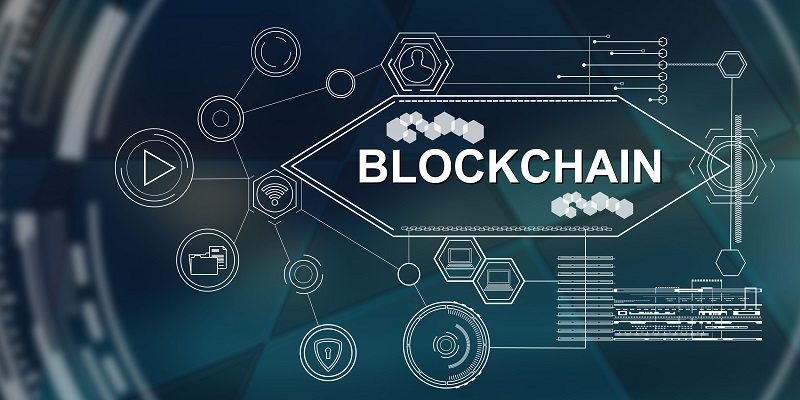Innovation and technological advancements have been the key drivers of progress and significant milestones in the field of business and society. The emergence of blockchain technology and artificial intelligence has been taking the world by storm in recent years, with each having the deep potential to revolutionize various sectors of the economy. However, the application of blockchain technology in artificial intelligence (AI) systems is now a new frontier. The combination of these two technologies could unlock unimaginable potentials and disrupt many industries. This article discusses the convergence of blockchain and AI, the benefits, and the impact it could have on industries.
What is blockchain technology?
Blockchain is a digital technology that enables secure and transparent transaction record-keeping. It is decentralized, meaning that records are held on a distributed network of computers rather than a single central authority. These records are also immutable, meaning that once they are recorded on the blockchain, they cannot be altered or deleted. Blockchain technology solves the issue of trust in transactions, ensuring that all parties can trust that the transaction is legitimate and secure.
Advancements in Blockchain Technology
In recent years, advancements in blockchain technology have been at the forefront of innovation across various industries. Some of the applications of blockchain include supply chain management, voting, and financial services. Blockchain technology has also gained immense popularity in the digital currency world, with Bitcoin being the most well-known cryptocurrency. The introduction of smart contracts on the blockchain allowed for the automation of agreements between parties, ensuring that they are enforced when certain conditions are met.
Benefits of using Blockchain Technology in AI Systems
By using blockchain as a framework for data storage, AI systems can operate in a decentralized and secure environment. Blockchain eliminates the centralization of data storage and enhances transparency and immutability, both of which are vital benefits to ensure trust in AI-based systems. The transparency ensures that the AI outputs can be validated while immutability assures the data’s integrity. The combination of blockchain and AI has the potential to result in more trustworthy AI-based systems for analysis and decision-making.
Facilitating Transparent and Automated Agreements through Smart Contracts
Smart contracts can facilitate transparent and automated agreements between AI systems, improving efficiency and minimizing potential errors. They ensure that the AI systems operate within specific parameters and are triggered to execute predetermined actions when the conditions are met. These contracts are stored in tamper-evident and immutable blockchain environments. This environment ensures that the contract’s terms always remain as agreed upon, even if both AI systems are in disagreement or no longer in existence.
The Combined Potential of Blockchain and Generative AI-Based Systems
Generative AI is an approach of AI that focuses on creating and generating outputs. While this field is still relatively new, it has shown considerable promise and potential for creative endeavors. By combining blockchain technology with generative AI-based systems, businesses could unlock new operational value and efficiencies. For instance, the introduction of generative AI in content creation could assist businesses in creating large volumes of high-quality content quickly.
Automating the creation of smart contracts with generative AI
Generative AI could positively benefit blockchain solutions by automating the creation of smart contracts. While traditional smart contracts are written in code by developers, generative AI could help create code that is more efficient, secure, and tailored to the unique requirements of a particular blockchain solution.
Industries that could be positively impacted by the convergence of blockchain and AI
The convergence of these technologies could transform numerous industries, including supply chain management, financial services, and healthcare. For example, in the supply chain industry, the transparency and traceability provided by blockchain technology can be used to ensure the authenticity of goods and reduce counterfeiting. In healthcare, the use of blockchain can improve the accessibility, security, and accuracy of patient data. This increased accuracy can also aid healthcare practitioners in developing more effective treatment protocols.
Resource-intensiveness of both technologies
Both blockchain and AI are resource-intensive, as they require significant processing power. For example, Bitcoin mining is known for being energy-intensive, as miners use considerable amounts of electricity to solve cryptographic problems. Similarly, AI requires significant computing resources to perform tasks such as natural language processing and image recognition. Implementing blockchain technology in AI also entails substantial computing and storage resources. This resource-intensiveness can create a significant barrier to entry for smaller players attempting to compete in the field.
As we progress, the combination of emerging technologies produces new solutions that not only leverage the benefits of each technology but also accelerates solutions to achieve new levels of efficiency, performance, human capability, societal outcomes, and business results. Combining blockchain and AI could have a significant impact on various sectors of the economy, from manufacturing and healthcare to finance and supply chain management. While the adoption of such technologies could take some time, it is an exciting time in the tech industry as we witness the convergence of emerging technologies and their transformative impact on various aspects of business and society.

